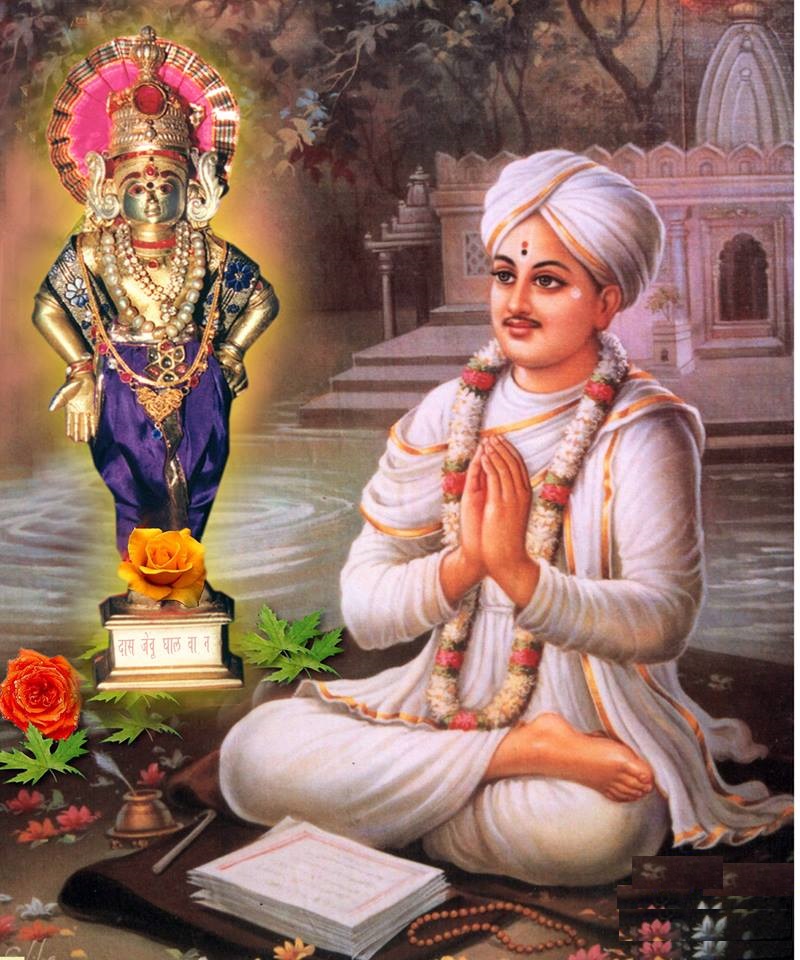Namdev, also transliterated as Namdeo and Namadeva, (traditionally, c. 1270 – c. 1350) was a poet-saint from Maharashtra, India who is significant to the Varkari sect of Hinduism. He is also venerated in Sikhism, as well as Hindu warrior-ascetic traditions such as the Dadupanthis and the Niranjani Sampraday that emerged in north India during the Islamic rule.
According to Christian Novetzke, “one of the most prominent voices in the historical study of Maharashtrian sant figures” — has suggested that 1207-1287 is more likely, based on textual analysis. Some scholars date him to around 1425[8] and another, R. Bharadvaj, proposes 1309-1372.
Namdev was married to Rajai and had a son, Vitha, both of whom wrote about him, as did his mother, Gonai.
According to Mahipati, a hagiographer of the 18th century, Namdev’s parents were Damashet and Gonai, a childless elderly couple whose prayers for parenthood were answered and involved him being found floating down a river.
There are contrary traditions concerning his birthplace, with some people believing that he was born at Narsi Bahmani, on the Krishna River in Marathwada, and others preferring somewhere near to Pandharpur on the Bhimariver.[13] that he was himself a calico-printer or tailor and that he spent much of his life in Punjab. The Lilacaritra suggests, however, that Namdev was a cattle-thief who was devoted to and assisted Vithoba.
The literary works of Namdev were influenced by Vaishnavaphilosophy and a belief in Vithoba. Along with the Jñānēśvarī, a sacred work of Jñānēśvar, and of Bhakti movement teacher-writers such as Tukaram, the writings of Namdev form the basis of the beliefs held by the Varkari sect of Hinduism. He was thus among those responsible for disseminating the monotheistic Varkari faith that had emerged first in Karnataka in the mid-to-late 12th century and then spread to Pandharpur in Maharashtra.
The earliest anthological record of Namdev’s works occurs in the Guru Granth Sahib, the Sikh scriptures compiled in 1604.
The numerous subsequently produced manuscripts also show variant texts and additions that are attributed to him. Of around 2500 abhangs that were credited to him and written in the Marathi language, perhaps only 600 – 700 are authentic. The surviving manuscripts are geographically dispersed and of uncertain provenance.
The Adi Granth of Sikhism includes a compilation of 61 songs of Namdev. However, of these only 25 are found in surviving Namdev-related manuscripts of Rajasthan.
1350 CE
Location disputed.

